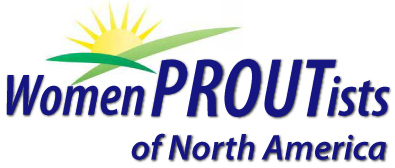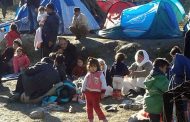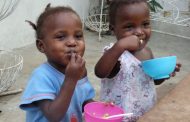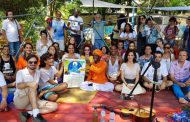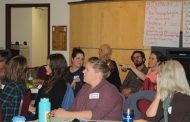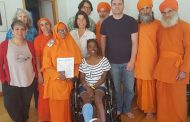This article is a follow-up to “Community Driven Maternal Health Programs in Nigeria” – Rising Sun, 01/2014
By Dada Daneshananda
AMURT started the maternal health program in Nigeria’s Ebonyi State in 2010. When the first Rising Sun article came out, we had just passed one thousand births. Today we are close to ten thousand births. The number of health centers has grown from five to eight.
The growth of the program can be attributed to the strategy of community mobilization and participation, made possible through local capacity building and intensive and extensive health education campaigns.
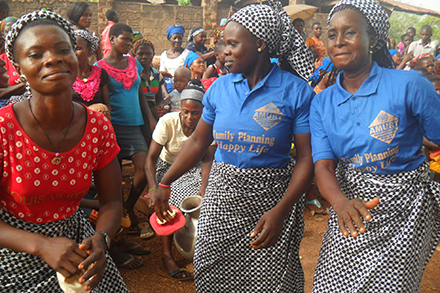 Maternal Health Promoters forming a grassroots network for change
Maternal Health Promoters forming a grassroots network for change
In 2014 AMURT conducted village meetings throughout the five project areas. With the support of the male population, the women in each village elected from among themselves women to be trained as a Maternal Health Promoter. The number of maternal health promoters active in the AMURT project areas is now 179.
The Maternal Health Promoters’ duties include identifying local pregnant women and to conduct monthly support group meetings for all the pregnant women. One health worker from the local health center attends to help teach and answer questions. The maternal health promoter guides and encourages each pregnant woman to attend prenatal check-ups at the health center to go there to give birth. She also monitors home births for those who still chose give birth at home. AMURT offers free delivery to the women who attend meetings and postnatal check-ups at the local health center.
The maternal health promoters have grown into a dynamic grassroots network for health promotion.
Capacity building and scholarships for young health workers
AMURT recruits staff from the local project areas to help ensure 24-hour service in the health centers. The presence of locals on the staff helps to strengthen the bond between the health centers and the communities, resulting in community confidence and higher patronage.
AMURT offers a scholarship program to give the most talented and committed of these community volunteers the opportunity to become qualified health workers. Through employment and support for further education, AMURT has given dozens of young rural women, and some young men, a career and opportunity to serve their communities.
Today 81 % percent of the health workers in AMURT in the AMURT assisted health centers stem from the local areas. Seven women are studying on AMURT scholarships to become qualified health workers, with an additional ten set to receive scholarship this year.
Family planning reaching the rural areas
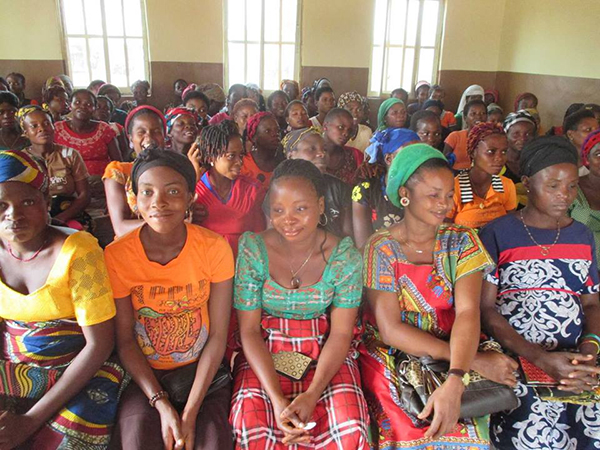 In Nigeria’s rural villages, children are highly valued. A popular woman’s name is ‘Nwankaego’ which means ‘children are better than money’. The child mortality rate has been high, and families have many children as they fear that some of their children may not survive. Nearly 100 % of the families are farmers and often state the need for help on the farm as a reason for having many children. Finally, children are seen as a gift from God and as such are welcomed warmly. Even among very young unmarried women, the culture is supportive for a pregnant woman. Abortion is seen as an abomination. There is much pressure on women to produce children. Childbearing is seen as the primary work of the rural women. The women who don’t have children don’t get respect and are looked upon with pity or even spite. With very few opportunities for education or careers in business, young women have no options, and often marry and have children early, settling into a life of farming and child rearing like their mothers before them.
In Nigeria’s rural villages, children are highly valued. A popular woman’s name is ‘Nwankaego’ which means ‘children are better than money’. The child mortality rate has been high, and families have many children as they fear that some of their children may not survive. Nearly 100 % of the families are farmers and often state the need for help on the farm as a reason for having many children. Finally, children are seen as a gift from God and as such are welcomed warmly. Even among very young unmarried women, the culture is supportive for a pregnant woman. Abortion is seen as an abomination. There is much pressure on women to produce children. Childbearing is seen as the primary work of the rural women. The women who don’t have children don’t get respect and are looked upon with pity or even spite. With very few opportunities for education or careers in business, young women have no options, and often marry and have children early, settling into a life of farming and child rearing like their mothers before them.
Ebonyi state’s fertility rate is 5.3 births per woman, while in the remote villages where AMURT works many women have many as eight or ten children. Maternal health promoters organize programs for the AMURT health education team to raise the awareness and acceptance of the health benefits of child spacing. In the AMURT assisted health facilities, the rural population now has access to counselling and a variety of contraceptive options.
In 2017, 261 women accessed injectable contraceptives and 836 chose implants. We did 16 IUDs and four bilateral tubal ligations. Hundreds more chose natural birth spacing methods.
Long held cultural beliefs are evolving as families put health first. The awareness of a woman’s right to decide if and when she wants to get pregnant is gradually starting to gain acceptance among the women and also the men. There is still much work and a long way to go on reproductive health and reproductive rights in Nigeria’s rural villages.
Economic Empowerment for women who are sole breadwinners
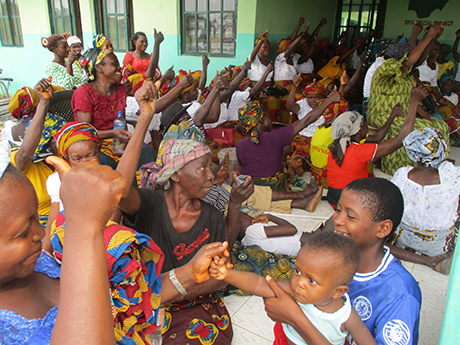
Successful families thrive in a community of health education and support
Through the health centers, AMURT encounters many women who are the sole breadwinners in their families. Most are widows; others have husbands with disabilities. Local traditions continue to place widows at a big disadvantage. In the economic empowerment program, indigent women come together to cooperatively manage a revolving credit scheme. Interest free loans are made available to the women to start their own businesses. After two months, they start paying back 10 % monthly. After one year the loan is fully paid back. Every month a new member is empowered by the group. AMURT provides basic training in business planning and bookkeeping. Over 150 women in six different groups have been supported to start businesses through this cooperative program. The capital, managed by the women, remains intact as new members are welcomed.
The AMURT primary healthcare program in Ebonyi State now has a staff of over 160, including seven doctors, three laboratory scientists, nine midwives, and 120 health workers in the village health centers. We have 13 vehicles, including five ambulances. Odeligbo Health Center was upgraded to a Comprehensive Emergency Obstetric and Newborn Care Center, and has already done 45 cesarean sections. There are plans for upgrading two more centers in 2018.
It’s the dedication and hard work of the health workers that has enabled AMURT to set the standard for primary health care in southeast Nigeria.
Contact us! Web: www.nigeria.amurt.net u Facebook: AMURT West Africa u E-mail: nigeria@amurt.net
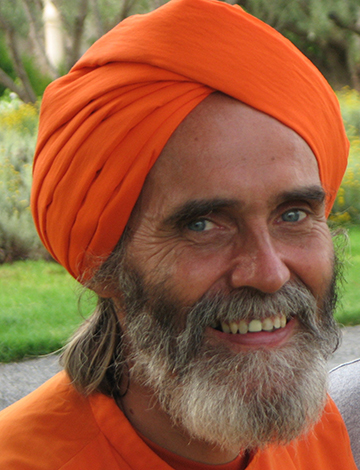
Dada Daneshananda has spent the last eighteen years in West Africa coordinating primary healthcare, maternal health, and water projects, first in Ghana, then in Burkina Faso and currently in Nigeria. The photos in this article were taken by Dada of educational programs offered by his program.
